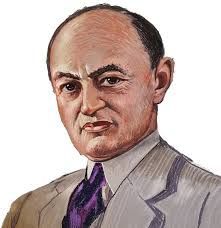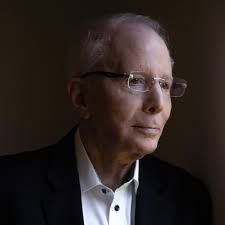By Byron Ramirez, Ph.D.
•
27 Apr, 2024
The formal study of entrepreneurship begins with the works of Richard Cantillon and Adam Smith in the 18th century. Cantillon's (1755) Essai Sur La Nature Du Commerce En Général is considered by many an important early treatise on enterprise economics and entrepreneurship. In this work, Cantillon provides his conception of theentrepreneur as a risk-bearer - someone whose acceptance of risk allows them to pursue entrepreneurial activities. Two decades later, Adam Smith in his (1776) An Inquiry into the Nature and Causes of the Wealth of Nations explains that nations grow wealthy through changes in the division of labor. Smith describes how human actions lead to changes in the division of labor, economic outcomes, and subsequent new venture formation. Smith suggested that divisionof labor (implicitly entrepreneurship) was the driver of wealth in society. The French economist, Jean-Baptiste Say in his (1803) Traité d'économie politique ou simple exposition de la manière dont se forment, se distribuent et se composent les richesses posits that the entrepreneur, who he also refers to as the ‘undertaker’, is someone who takes upon himself the immediate responsibility, risk, and conduct of a concern of industry, whether upon his own or on borrowed capital. Say argued: “The entrepreneur shifts economic resources out of an area of lower and into an area of higher productivity and greater yield” (Say 1803). By pursuing areas of greateryield, Say argues, the entrepreneur is effectively taking on greater risk. Accordingly, the entrepreneur is also receiving a higher return on investment. Although entrepreneurial activities continued for two hundred years, the study of entrepreneurship remainedlargely ignored by academics until the early 20 th century. An economist by the name of Joseph Schumpeter in the 1930s,and other Austrian economists such as Carl Menger, Ludwig von Mises, and Friedrich von Hayek begun to increasingly discuss entrepreneurship in their works. Schumpeterwould argue that the innovation and technological change of a nation stem from the efforts of entrepreneurs. Schumpeter even devised the term Unternehmergeist , German for entrepreneur-spirit. Schumpeter suggested in his 1942 book Capitalism, Socialism and Democracy , that “creative destruction” represents the disruptive process of transformation that accompanies innovation. Moreover, he argued that the innovativeentry by entrepreneurs into a market was the disruptive force that sustained economic growth. Schumpeter contended that entrepreneurship drives economic growth by disrupting existing industries and creating new ones. Thereupon, the entrepreneur challenges the status quo, leading to the replacement of older technologies, businesses, and economic models with new, more efficient ones. Schumpeter maintained that entrepreneurship is a dynamic force of change which drives progress and societaladvancement. Ergo, as agents of change, entrepreneurs introduce new products, services, and market structures that generate economic growth and influence society. Schumpeter argued that entrepreneurship involves introducing new and different combinations of resources, technologies, and organizational methods that create value. Yet, he emphasizedthe importance of having an entrepreneurial spirit and mindset in fostering economic dynamism. He believed that entrepreneurship is supported by a mindset which is characterized by initiative, ingenuity, and a yearning to challenge the status quo. A few decades later, Peter F. Drucker would also discuss entrepreneurship in his writings. In his 1985 book titled: “ Innovation and Entrepreneurship ”, Drucker states: “Entrepreneurship rests on a theory of economy and society. The theory sees change as normal and indeed as healthy. And it sees the major task in society – and especially in the economy – as doing something different rather than doing better what is already being done” (Drucker, 1985, p. 26). Drucker opined that entrepreneurs introduce changing, newer ways of doing things, and hence fulfill an important role in the market, economy, and society. By addressing needs, solving problems, andoffering innovative solutions, entrepreneurs contribute to economic growth and development. In his Innovation and Entrepreneurship , Drucker also dissects the practice of entrepreneurship, highlighting the importance of establishing systematic, organized, and purposeful management. He describes entrepreneurship as “not natural”, nor “creative”. Instead, Drucker argues that entrepreneurship is work. And entrepreneurship must beconsciously driven for, thereby it requires effort. Drucker explains that entrepreneurial management requires policies andpractices that support four key areas: (1) fostering an entrepreneurial climate – the organization must be receptive to innovation and be willing to perceive change as an opportunity rather than a threat; (2) developing systematic measurement of performance and learning to improve performance; (3) adapting organizational structure – adjustingstaffing, managing, compensation, incentives, and rewards; and (4) recognizing that trying to become “entrepreneurial” without changing basic policies and practices that support those efforts, could lead to entrepreneurial failure. Drucker believed that entrepreneurs are constantly seeking opportunities for innovation and change. Hence, they have a keen ability to recognize market needs and identify existing inefficiencies. He also believed that entrepreneurs have the courage to step outside of traditional boundaries and challenge the status quo. Yet, Drucker emphasized the importance of taking disciplined initiative in entrepreneurship. Without consistency, discipline, and initiative, the entrepreneur cannot develop new products, services, or solutions that address societal challenges. Druckerhighlighted the criticality of results-oriented thinking and of measuring performance. He opined that entrepreneurs must constantly seek ways to improve, and that continuous learning is essential to evolve and deliver value. Hence, entrepreneurs are lifelong learners who are adaptable and resilient, able to pivot and adjust their approaches and strategies in response to varying market conditions and unanticipated challenges. Through their works, Joseph Schumpeter and Peter Drucker have influenced our perspective of entrepreneurship, and the way entrepreneurship is practiced. Schumpeter and Drucker possessed some similar views on who entrepreneursare, and what they do. Perhaps, one of the key differences between Schumpeter and Drucker, is that the former consideredthat “creativity” contributes to and supports entrepreneurship, while the latter argued that entrepreneurship is not aboutcreativity, but rather work and effort. Notwithstanding this notable difference, both Schumpeter and Drucker envisionedthe entrepreneur as an agent of change, someone who is willing and able to change the way things are done, challengingthe status quo, and delivering value to society. As such, entrepreneurs do not solely create new products or services, theyhave the ability to profoundly impact society. References Cantillon, R. (1755). Essai sur la nature du commerce en général. INEd. Drucker, P. (1985). Innovation and entrepreneurship: practice and principles. New York, NY: Harper Business. Say, J. B. (1846). Traité d'économie politique: ou simple exposition de la manière dont se forment, se distribuent et seconsomment les richesses (Vol. 9). O. Zeller. Schumpeter, Joseph A. (1942), Capitalism, socialism and democracy. London: Unwin. Smith, A. (1776). An inquiry into the nature and causes of the wealth of nations. Smith, A. (1776). An inquiry into the nature and causes of the wealth of nations.







